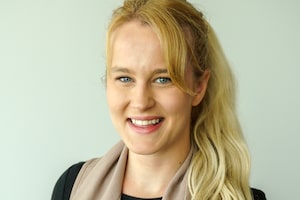Rahaf Mohammed, an 18-year-old Saudi woman who fled her family, speaks at the COSTI Corvetti Education Centre in Toronto, Ont., on Jan. 15, 2019.MARK BLINCH/Reuters
Rahaf Mohammed, the 18-year-old from Saudi Arabia whose efforts to flee to Canada as a refugee captured global attention this month, will be retreating from the public eye as she resettles.
“I would like to start living a normal, private life,” said the teenager, who has dropped her family name, al-Qunun, since her family has reportedly severed ties over social media.
Ms. Mohammed has alleged abuse at the hands of her family in Saudi Arabia, but did not elaborate in a statement delivered Tuesday in Arabic, then repeated by an English translator, at a news conference in Toronto. She said instead that she was “not treated respectfully” by her family and denied the ability to make her own decisions. She would now like to live “like any other young woman” in Canada.
But the new reality for Ms. Mohammed is far from the anonymous integration of most asylum seekers and refugees to Canada. It comes at the end of a high-profile ordeal that began when she fled her family during a visit to Kuwait this month. She flew to Thailand, where she told officials she feared her family would kill her if she was returned to Saudi Arabia. Denied entry to Bangkok, she barricaded herself in an airport hotel room, taking to Twitter to appeal for help. From there, her plight gained global attention, and at the request of the United Nations High Commissioner for Refugees, she was granted asylum in Canada.
Canada’s decision to grant her asylum has not yet drawn an official response from the Saudi government, whose relationship with Ottawa has been strained since a diplomatic spat erupted in August.
Foreign Affairs Minister Chrystia Freeland personally greeted Ms. Mohammed at the airport. Speaking to reporters Tuesday in Saint-Hyacinthe, Que., Ms. Freeland said she made that decision in part because Ms. Mohammed is about her daughter’s age. "I imagined it would be a difficult and perhaps frightening moment, and it might make a difference to her personally to feel she had the personal welcome and support of our government,” she said.
Now, though, Ms. Mohammed is being threatened on social media.
“She has taken a position that some take issue with,” Mario Calla, executive director of the immigrant services agency COSTI, told reporters. Sometimes Ms. Mohammed feels safe, he said. Other times, less so. She is never left alone – a COSTI staff member is with her at all times – and the agency has hired a private security guard.
“Frankly, this happened so quickly, we hired the guards, and we will talk to the federal government,” Mr. Calla told reporters about the price for Ms. Mohammed’s security. “I’m sure they’ll cover it.” If not, he said, the agency will foot the bill.
Shannon Ker, a spokesperson for Immigration, Refugees and Citizenship Canada, said the department is working with COSTI on the issue of security costs. “With respect to the Urgent Protection Program, it is used for a small number of individuals who qualify for resettlement, and are in need of urgent protection because of immediate threats to life, liberty or physical well-being,” she wrote in an e-mail.
Mr. Calla acknowledged that security may be a long-term problem for Ms. Mohammed and said COSTI staff are informing her about the risks she faces.
Additionally, they’re considering setting her up with a family, so she doesn’t have to live alone. “She feels safe because she knows she’s in a safe country. She sees the people around her have her best interests at heart, they’re trying to help her,” Mr. Calla said. “At the same time, she sees these threats. … She has basically broken away from her family and so on. That scares her. Her emotions go back and forth.”
Mr. Calla isn’t aware of any direct contact from Ms. Mohammed’s family and could not confirm the authenticity of a family statement quoted by media outlets.
In her statement Tuesday, Ms. Mohammed said all Saudi women are barred from being who they want to be – “except for those that are fortunate enough to have understanding parents.
“Any woman who thinks of escaping, or escapes, will be at risk for persecution,” she said through her translator.
According to The Canadian Press, the head of Saudi Arabia’s state-controlled human-rights commission was quoted in Saudi media on the weekend accusing Canada of meddling in the affairs of Ms. Mohammed’s family with the intent of vilifying Saudi Arabia. Mufleh Al-Qahtani said Canada’s action was “an attack on the rights of the families of these girls, who are severely harmed by the defamation following their daughters’ action that pushes them into the unknown.”
With files from Les Perreaux
 Victoria Gibson
Victoria Gibson